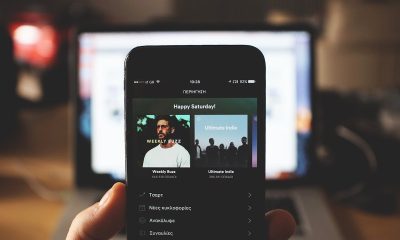Health
Stanford researchers call for healthy behaviors plus healthy thoughts

Controlling for physical activity and using statistical models that accounted for age, body mass index, chronic illnesses and other factors, they found that individuals who believed that they were less active than others were up to 71 percent more likely to die in the follow-up period than individuals who believed that they were more active than their peers (Pixabay Photo, CC0)
SAN FRANCISCO, July 24 – Two Stanford University researchers have found that adults in the United States who believed that they were less active than their peers died younger than those who believed they were more active, even if their actual activity levels were similar.
Alia Crum, an assistant professor of psychology, and Octavia Zahrt, a doctoral candidate at the Graduate School of Business, analyzed surveys from more than 60,000 adults from three national data sets, including one during which participants wore an accelerometer to measure their activity over a week. The surveys documented participants’ levels of physical activity, health and personal background, among other measures.
The two were interested in one question in particular: “Would you say that you are physically more active, less active, or about as active as other persons your age?”
They then viewed death records from 2011, which was 21 years after the first survey was conducted. Controlling for physical activity and using statistical models that accounted for age, body mass index, chronic illnesses and other factors, they found that individuals who believed that they were less active than others were up to 71 percent more likely to die in the follow-up period than individuals who believed that they were more active than their peers.
“Our findings fall in line with a growing body of research suggesting that our mindsets – in this case, beliefs about how much exercise we are getting relative to others – can play a crucial role in our health,” Crum said.
Crum’s prior research shows that the health benefits people get out of everyday activities depend in part on their mindsets – that is, whether or not they believe that they are getting good exercise. In her 2007 study, Crum made a group of hotel room attendants aware that the activity they got at work met recommended levels of physical activity. Through this shift in mindsets, the workers, many of whom had previously perceived themselves as inactive, experienced reductions in weight, body fat and blood pressure, among other positive outcomes.
The researchers emphasize that the new study, published in the latest issue of the journal Health Psychology, is correlational in nature and thus does not prove that perceptions of inactivity cause earlier death. However, other experimental research – such as Crum’s 2007 study – does suggest a causal nature to the link between perceived amounts of exercise and health outcomes.
“So much effort, notably in public health campaigns, is geared toward motivating people to change their behavior: eat healthier, exercise more and stress less,” Crum was quoted as saying in a news release. “But an important variable is being left out of the equation: people’s mindsets about those healthy behaviors.”
Zahrt and Crum offer possible explanations for mindsets and perceptions having such powerful effects on health. One is that perceptions can affect motivation, both positively and negatively. Those who are made aware of their healthy activity levels – like the hotel room attendants in Crum’s 2007 study – can build on them and exercise more. Those who deem themselves unfit are more likely to remain inactive, fueling feelings of fear, stress or depression that negatively affect their health. And, there is established influence of placebo effects, where patients who think they are getting a treatment experience physiological changes without receiving actual treatment. In the same way, people who believe they are getting good exercise may experience more physiological benefits from their exercise than those who believe they aren’t getting enough exercise.
How can people use this finding? Many Americans think that vigorous exercise in a gym is the only way to attain a proper activity level, according to Zahrt and Crum. But being mindful of and feeling good about activities you do every day – like taking the stairs, walking or biking to work, or cleaning the house – could be an easy first step for everyone to benefit their health.
“In the pursuit of health and longevity,” Crum said, “it is important to adopt not only healthy behaviors, but also healthy thoughts.”





















